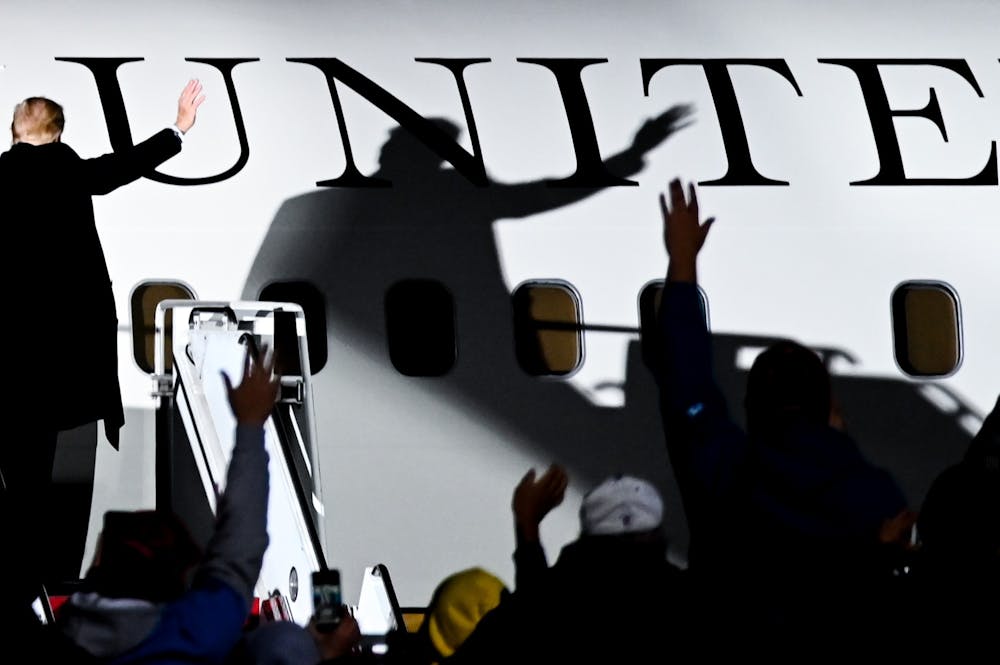The House of Representatives impeached 1968 Wharton graduate and President Donald Trump one week after he incited a deadly attack against the Capitol, making him the only president in United States history to be impeached more than once.
On Wednesday evening, 232 members of the House voted in favor of impeachment, surpassing the 217 required for a majority vote. All 222 House Democrats as well as 10 House Republicans voted to impeach. The House introduced and passed one article of impeachment, charging Trump with "incitement of insurrection."
The House convened earlier this morning after Vice President Mike Pence declined to invoke the 25th Amendment to remove Trump, the only Penn graduate ever elected to the presidency.
Trump’s second impeachment follows his incitement of an insurrectionary, right-wing mob's breaching of the U.S. Capitol last week, which served as an attempt to overturn the results of the 2020 presidential election. The speech Trump delivered to his supporters before they stormed the Capitol last week, in which he explicitly urged them to “be there, [and] be wild,” served as a key aspect of the House Democrats article of impeachment against the President, according to The New York Times. Trump has falsely claimed for months that he won the election over President-elect Joe Biden, citing baseless allegations of voter fraud via mail-in ballots.
Though Trump is just days away from finishing his presidential term, the Democratic House went forward with the impeachment on the basis of his outrageous conduct in inciting the Capitol insurrection, a breaking point after months of Trump's efforts to sow distrust about the election.
“[Trump] made statements that, in context, encouraged—and foreseeably resulted in—lawless action at the Capitol, such as: “if you don’t fight like hell you’re not going to have a country anymore.” Thus incited by President Trump, members of the crowd he had addressed...unlawfully breached and vandalized the Capitol, injured and killed law enforcement personnel, [and] menaced Members of Congress,” the Impeachment Resolution reads.
Even after his term ends, the Senate can continue to hold an impeachment trial for Trump. The Constitution empowers the Senate to impose sentencing on an impeached president that goes beyond just removal from office — including limitations regarding running for additional federal offices, according to Politico. This could mean that Trump, if convicted, may not receive his post-presidential salary, which would grant him around $220,000 a year, among other ex-president benefits.
In December 2019, Trump was impeached for the first time after the House of Representatives charged him with abuse of power and obstruction of Congress. The President was accused of soliciting election assistance from the Ukrainian federal government to investigate former Penn Presidential Professor of Practice and President-elect Joe Biden, who will be inaugurated on Jan. 20.
Unlike Trump's first impeachment, his second impeachment attracted more bipartisan support as representatives including third-ranking Republican Liz Cheney (R-Wyo.) and nine other Republicans voted in favor of the article. Senate Majority Leader Mitch McConnell (R-Ky.) is also reportedly considering voting in favor of conviction.
Trump is the third president to be impeached, following President Andrew Johnson and President Bill Clinton, who were both acquitted by the Senate. President Richard Nixon resigned from office before the House was able to vote on impeachment.
Following the Capitol mob, Penn President Amy Gutmann and Provost Wendell Pritchett condemned the insurrection but refused to explicitly denounce Trump’s actions or mention his self-touted connection to the University. Members of the Penn community are continuing already loud calls for the University to markedly disassociate from the President, and some alumni — already choosing to withhold donations to Penn in the wake of the Capitol mob — are calling for the revocation of Trump's undergraduate degree.









